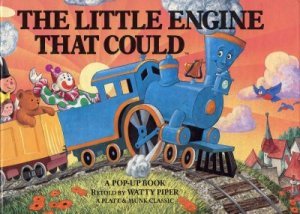 In 2011, Hugh Howey had just finished a college writing course in science fiction. After submitting his final project, he wanted to let his brain “purge” and unwind and so started writing Wool.
In 2011, Hugh Howey had just finished a college writing course in science fiction. After submitting his final project, he wanted to let his brain “purge” and unwind and so started writing Wool.
Rather than writing to please others, or to craft something that was cliched, marketable and safe, Hugh wanted to write a story he’d personally like to read, and that’s what makes Wool so enjoyable.
Little did Hugh know when he finished that first short story just how far the story would go and where it would take him. Hugh expanded Wool into a character-driven dystopian novel where authoritarian structures are brought down by those with the courage to think for themselves.
Now, Hugh has an international best seller that’s had movie rights optioned to none other than Ridley Scott. Wool has a phenomenal 3,876 reviews, with an average rating of 4.8 stars.
Wool is the little story that could.
And the surprising thing is, in the history of science fiction, it’s often the novellas and the short stories that make it big. Consider these classics
- I Am Legend
- Minority Report
- Do Androids Dream of Electric Sheep (Blade Runner)
- Ender’s Game (which like Wool was expanded into a novel)
- We Can Remember it for you Wholesale (Total Recall)
- Who Goes There? (The Thing)
- I, Robot
- Enemy Mine
- Bicentennial Man
- Johnny Mnemonic
- A Sound Of Thunder
Like the original Wool, all of these are either short stories or novellas, there’s not a novel among them.
As a writer, I find this fascinating as it dispels the myth that readers are only interested in full length novels, that if it’s not a novel it’s not worth reading. Nothing could be further from the truth.
In light of this, I’ve made my novella Trixie & Me available free on Amazon. It too is a little story chugging up the literary hill.
Intriguing. I read “Ender’s Game” when it was a novel – and really enjoyed it.
I wish you the best of success on your novella, Peter.
Thanks… it hovers around #50 in the top 100 free high-tech science fiction stories. It’s a sufficiently vague enough category for the story to do well 🙂
The age of electronic publishing definitely places the focus back on novellas which have been denied by traditional publishing due to the unprofitable cost of production / price ratio. eBooks don’t care about size, and neither do readers, and just like you said, there’s PLENTY of examples for that.
Good luck to Trixie! 🙂
Thanks 🙂
Yea, “Trixie & Me” is a pretty cool little tale!
yeah, I’ve got a soft spot for that story, I hope it does well in the long run 🙂